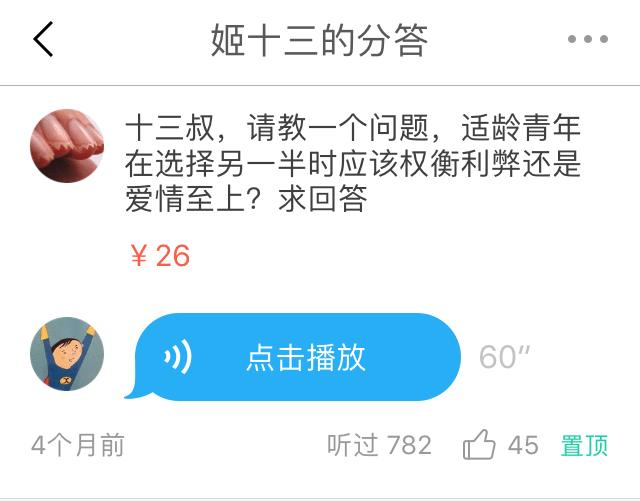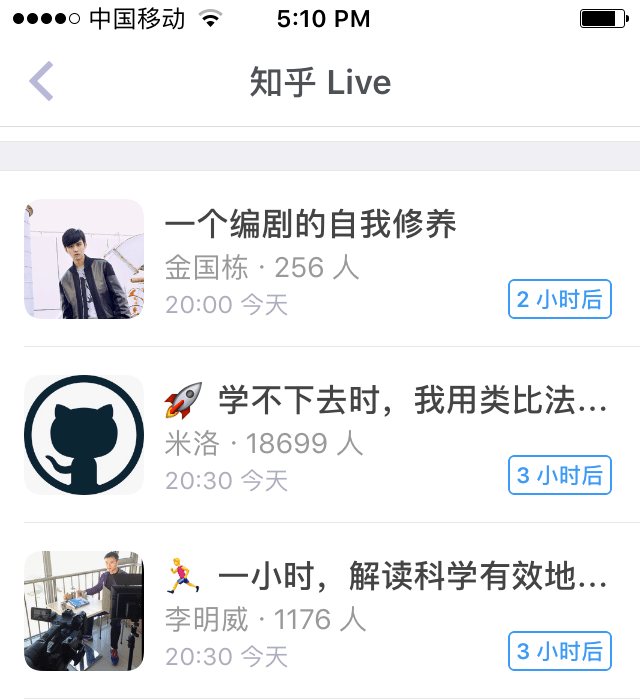The Chinese market is embracing the idea of knowledge sharing platforms with both their minds and their wallets

Ever since the invention of internet, users have spotted the joys of free knowledge: access to a sea of knowledge with one simple click of mouse. Chinese, though, is embracing the idea of paid knowledge sharing platforms with both their minds and their wallets.
The top three knowledge sharing platforms
China’s paid knowledge sharing industry mainly falls into three categories, represented by three apps: Fenda, the voice Q&A platform, Zhihu Live, the voice live streaming speech provider, and Ximalaya, the podcast-like app that offers paid audio courses.
Fenda
Launched on May 15, Fenda allows its users to ask celebrities and experts questions by offering a price for an answer – and then the person being asked chooses whether that price is acceptable. Another user who hopes to listen to the answer needs to pay a small sum of money – RMB1 (US$0.15).
Also Read: India-based edutech startup SuperProfs raises US$3M in Series A funding
The price of a question varies greatly. Wang Sicong, the only son of China’s richest businessman, Wang Jianlin, amassed over RMB200,000 (US$29,000) answering questions on Fenda. Wang Jianlin is chairman of Wanda Group, China’s largest real estate developer.
Late last month, Fenda announced that it secured RMB200 million (US$29 million) financing led by the Chinese tech behemoth Tencent. So far, the app has more than 500,000 celebrities and experts on it, and over one million paid users, according to Fenda.

Fenda’s founder, Ji Shisan, four months ago answered a question on Fenda to help young singles find a husband or wife. Priced at RMB 26 (US$3.7), the answer was listened to 782 times.
Also Read: For content-driven startups, speed (or the lack of it) can kill
Zhihu Live
Zhihu Live, as its Chinese name suggests, combines live streaming with knowledge sharing, where professionals give voice live streaming speeches and lectures to paid listeners, at an average price of RMB50 (US$7.2), according to Zhihu.
Zhihu users welcomed the new form of knowledge sharing. A live lecture on data analysis saw as many as 120,000 attendees.
In May, Zhihu, China’s Quora-like Q&A website, launched its paid live streaming product Zhihu Live, in an effort to monetise its 13 million daily active users.

A scriptwriter is going to hold a live speech about his job at 8PM on Monday on Zhihu Live. 256 users have paid for it.
Also Read: Sorry, kids: Ruangguru launches an app that enables parents to monitor your study
Ximalaya
Compared with Fenda and Zhihu, Ximalaya’s operations are more traditional, offering paid online audio courses. Its potent weapon against the competition is the use of key online opinion leaders and celebrities.
Although Ximalaya, a major Chinese podcast sharing service, claimed it has 250 million users, it is not as primed as other players in the field to transform its users into paid consumers.
Why do users pay for knowledge sharing services?
Demographically, economically, and technologically, the timing is perfect.
Also Read: Learning platform Teamie raises US$1.1M in pre-Series- A funding led by ACP
As the internet-savvy Generation-Y graduate from universities and start work, some among them seek more guidance to help them to grow quickly and perform better at work.
Compared to face-to-face lectures and speeches, the online sharing of knowledge can be more affordable and convenient. These new audio forms allow users to attend a lecture from any place that has internet access.
Why have these companies launched the service?
For knowledge-sharing online communities such as Zhihu and Fenda, they are keen to find monetising models based on their huge number of registered users.
Also Read: Wealth management platform Quantifeed closes US$4.5M Series A led by PGA Venture Partners
These apps are also happy to make use of the live streaming and voice messaging technology to help their users learn new things easier, and of course spend more time on their apps.
As more and more consumption shifts from products to knowledge, China’s consumption pattern is becoming more diverse.
—
The article Why knowledge sharing platforms are hot in China first appeared in AllChinaTech.
Heather is a writer at ACT. She is passionate about literature, photography and technology. She graduated from Shanghai University of International Business and Economics with a Master’s Degree. Writer to her: heather[at]allchinatech.com
Image Credit: soloway / 123RF Stock Photo
The post Why knowledge sharing platforms are hot in China appeared first on e27.